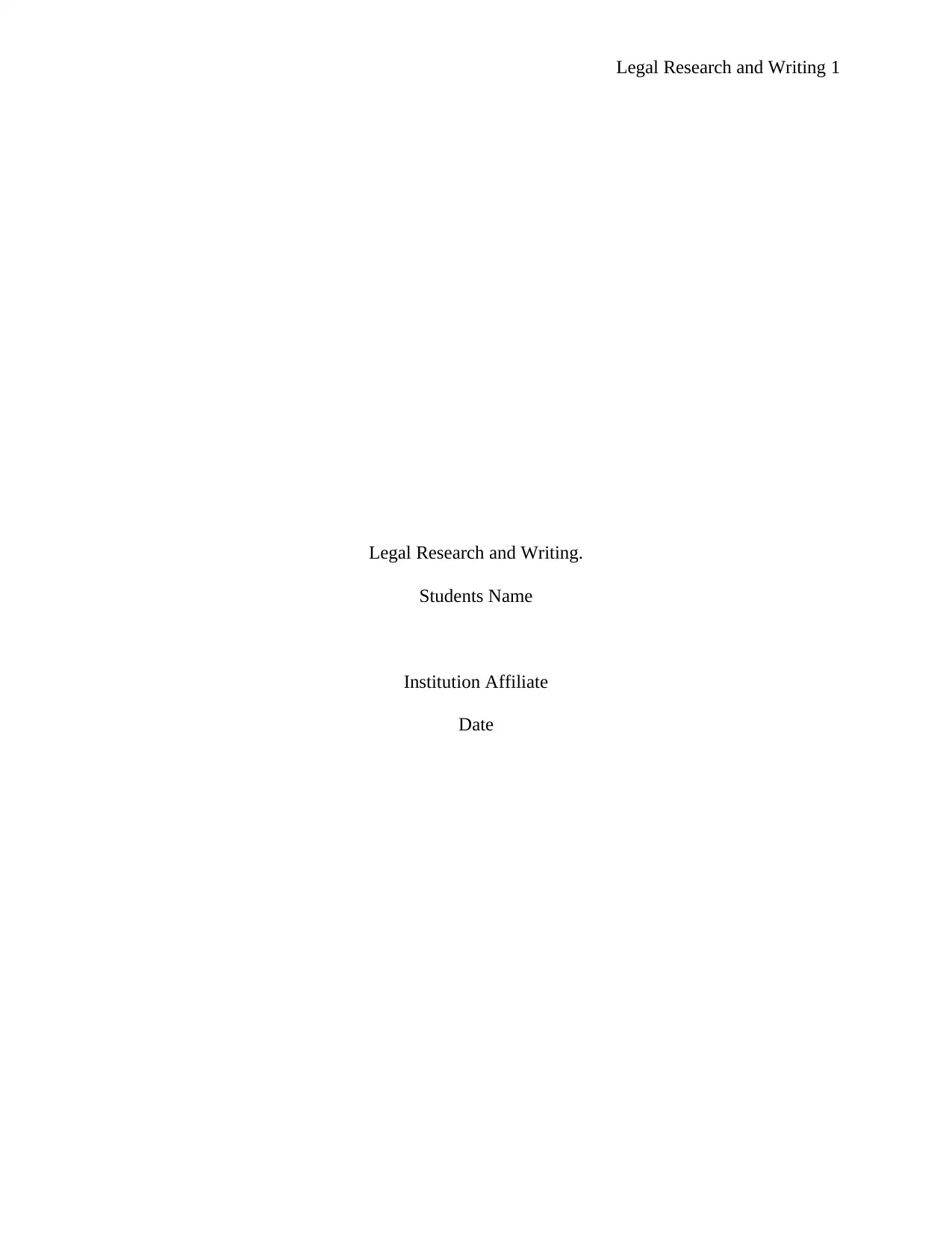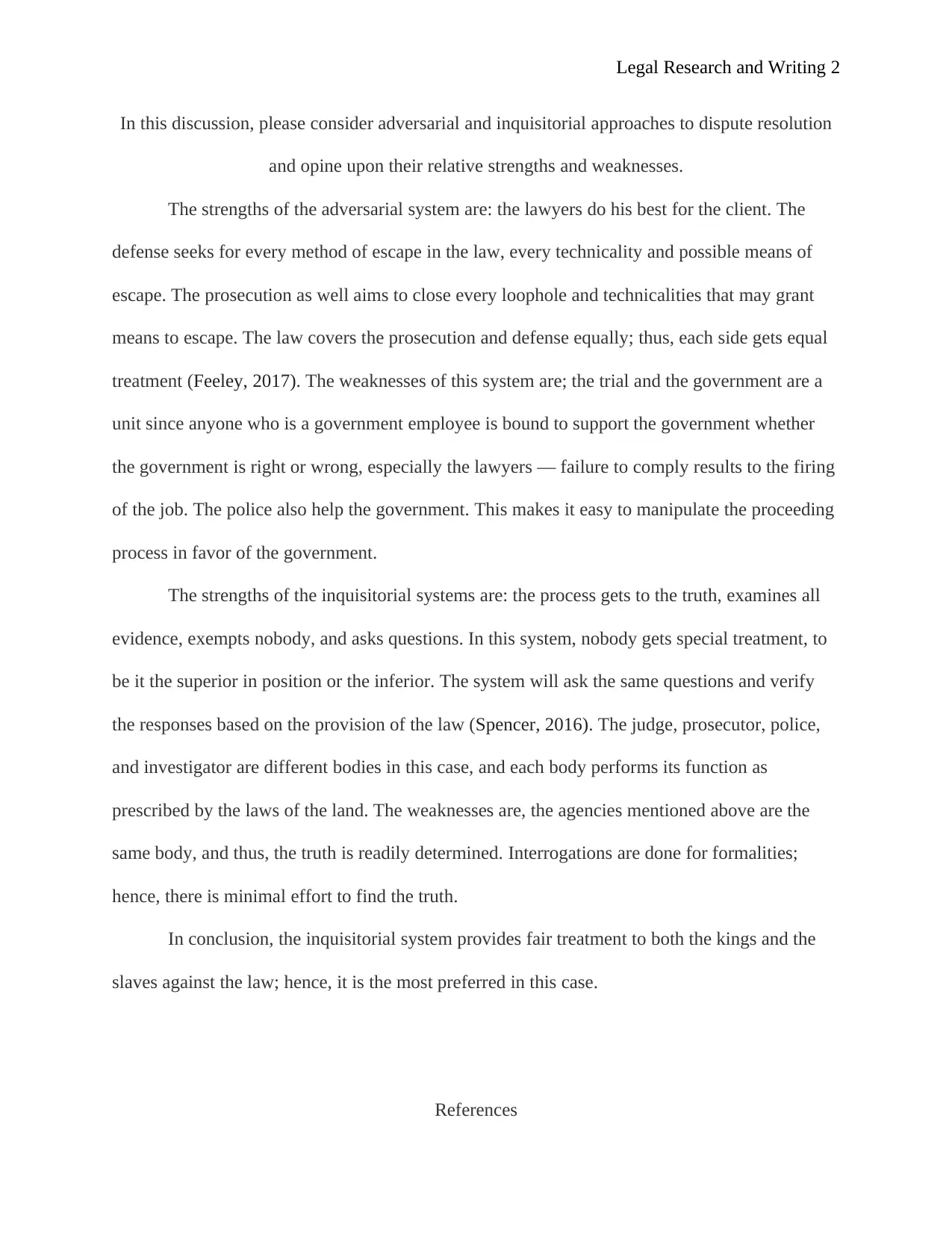Legal Research and Writing: Analysis of Dispute Resolution Approaches
VerifiedAdded on 2023/01/05
|3
|419
|80
Discussion Board Post
AI Summary
This discussion post examines the adversarial and inquisitorial systems of dispute resolution, analyzing their respective strengths and weaknesses. The adversarial system, characterized by a focus on lawyers advocating for their clients, is critiqued for potential biases due to governmental influence and potential manipulation. Conversely, the inquisitorial system, which emphasizes truth-seeking through comprehensive investigation and impartial questioning, is presented as a more equitable approach, ensuring fair treatment regardless of social standing. The post concludes by advocating for the inquisitorial system as the preferred method due to its commitment to fairness and unbiased application of the law. References to scholarly articles are included to support the analysis.
1 out of 3




![[object Object]](/_next/static/media/star-bottom.7253800d.svg)